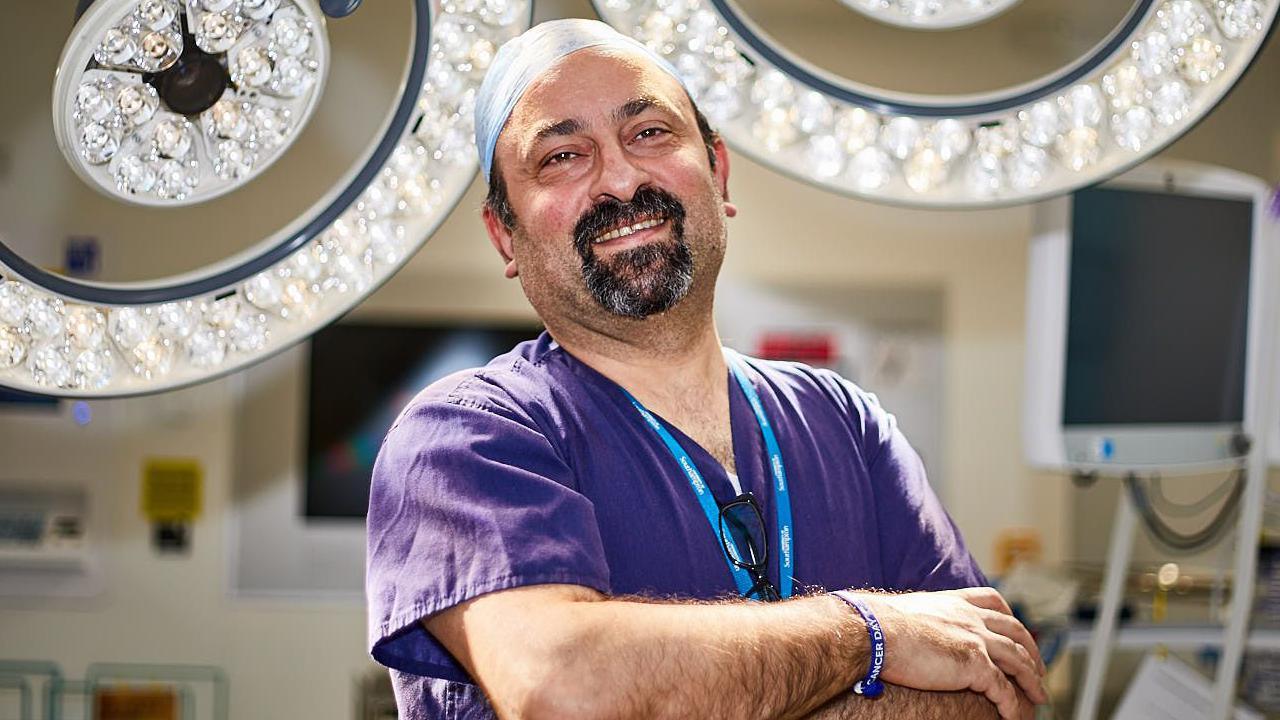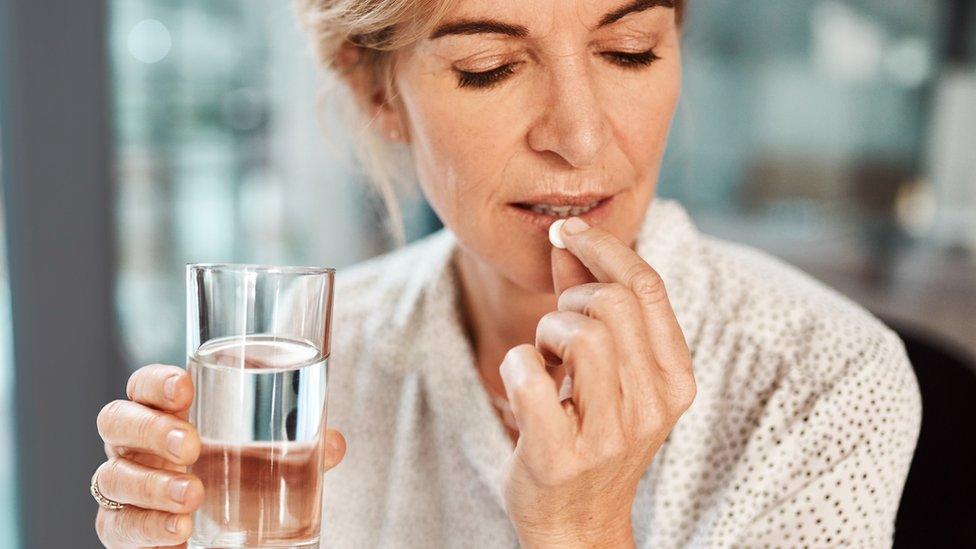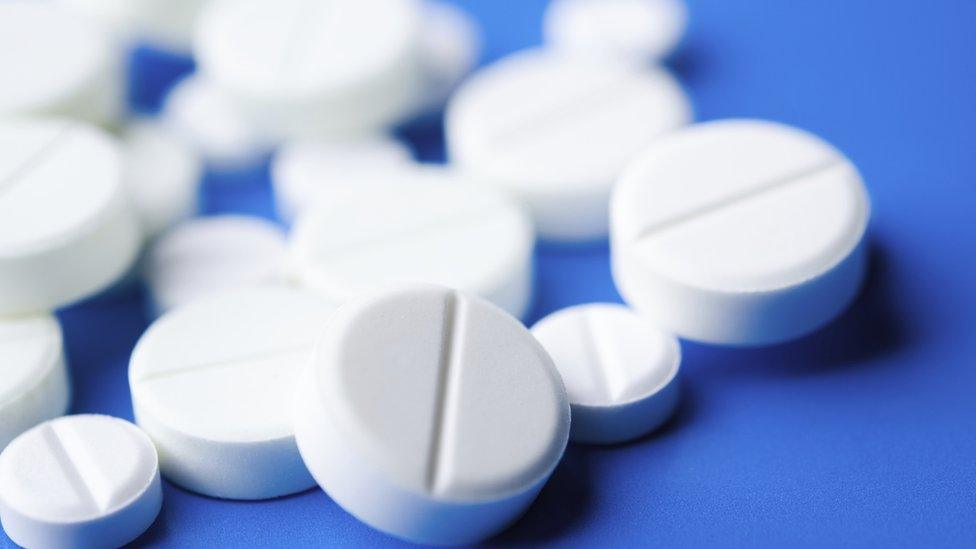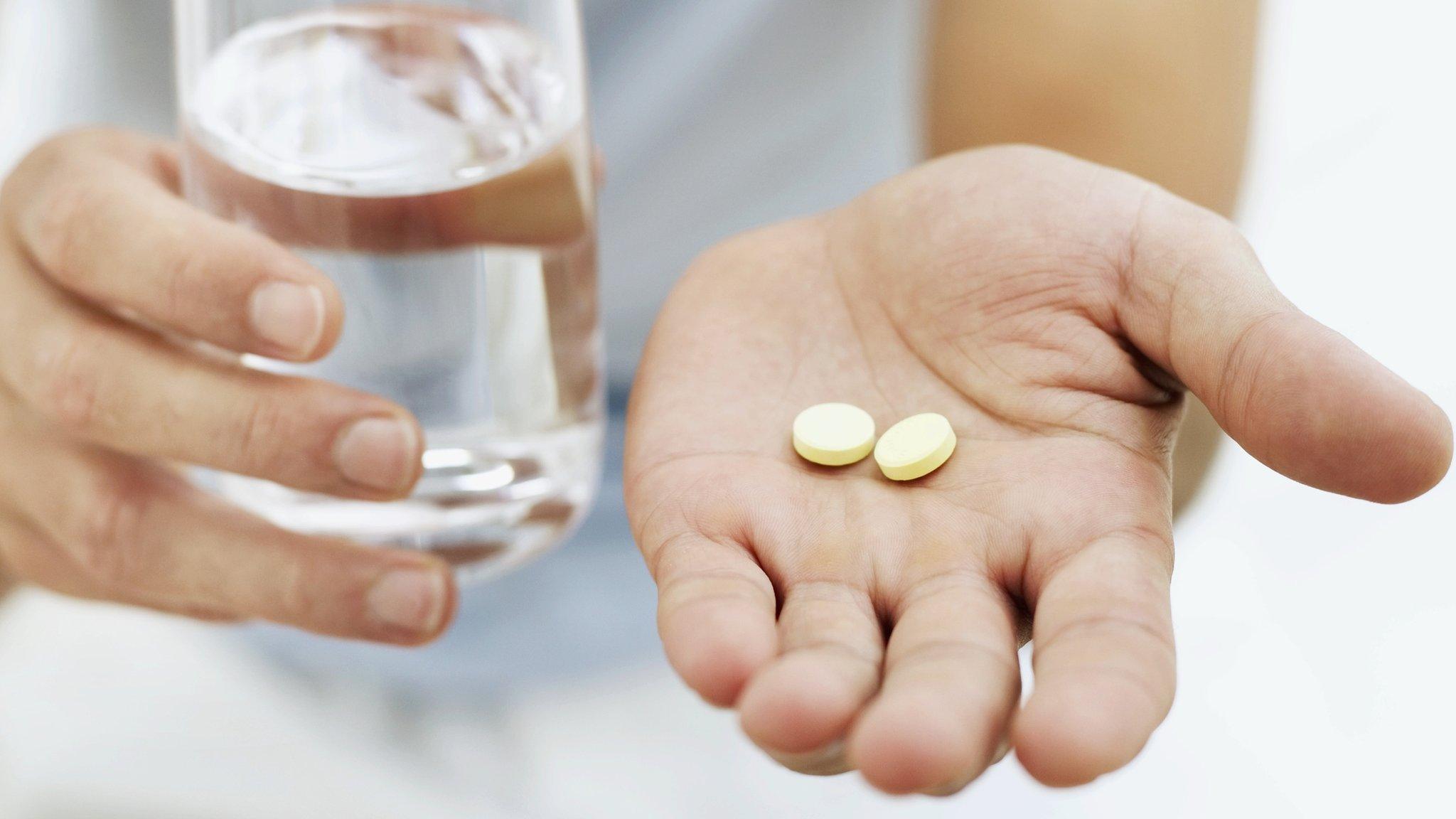Aspirin 'may prevent cancer in diabetes patients'

Dr Zaed Hamady said the study was the first to show an effect on people with diabetes
- Published
Regular use of aspirin may cut the risk of pancreatic cancer in people with diabetes by 40%, a study has found.
It may also prevent a fifth of those cancers in the general population, the Planets cancer charity said.
Researchers in Southampton examined the medical records of almost 10,000 people in the UK.
Dr Zaed Hamady, one of the authors, said it was the first study of such a large UK population and the first to report an effect in diabetes patients.
He said: "Pancreatic cancer is rated to be one of the worst cancers and almost everyone affected by pancreatic cancer will die within five years of their diagnosis.
"This large study, external demonstrates that commonly-used aspirin... can prevent the development of pancreatic cancer.
"We found there is a 20% reduced risk among the general population which has been demonstrated in the past with other cancers, particularly colon, but can now be replicated in pancreatic cancer.
"However, what is more striking is that the preventative effect is stronger in people with diabetes, with 40% less risk in this patient group."
Researchers from the University of Southampton and University Hospital Southampton studied a sample of records from the UK Biobank, a cohort of 500,000 people who were recruited between 2006 and 2010.
They said at the time of analysis there were 1,762 cases of pancreatic ductal adenocarcinoma (PDAC) - the most common type of pancreatic cancer - within the group.
Fewer cases of PDAC developed in those who were taking aspirin regularly at the time of recruitment, they said.
The NHS said low-dose aspirin - usually 75mg or a quarter of a regular tablet - was generally safe to take for a long time.
However, patients are advised to only to take it if recommended to by a doctor or midwife.
Increasing the dose can raise the risk of stomach ulcers, according to the NHS website.
Get in touch
Do you have a story BBC Hampshire & Isle of Wight should cover?
You can follow BBC Hampshire & Isle of Wight on Facebook, external, X (Twitter), external, or Instagram, external.
Related topics
See also
- Published18 August 2021

- Published22 October 2015

- Published4 September 2015
